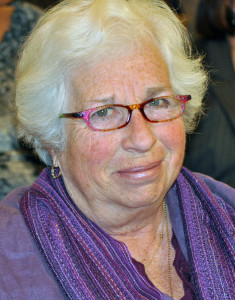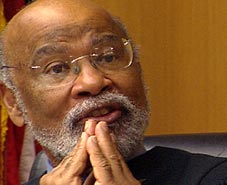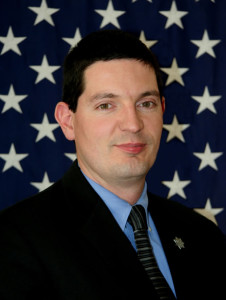Police Reformers File Ethics Commission Complaint, Seek Meeting with Judge Henderson
Sep 20, 2013
Posted in Police-Public Safety, Responsive Government
By Ken A. Epstein
Tenacious as ever, Oakland police accountability activists are seeking to regain momentum in their efforts to house all intake of complaints against Oakland Police Department officers outside of the department’s Internal Affairs Division.
After more than five years of determined and patient work and with a reform victory almost within sight, they were dismayed last week when federal Compliance Director Thomas Frazier, who oversees the court mandated police reforms, overruled a 2011 City Council decision to the place eight new complaint intake technicians within the Citizens Police Review Board (CPRB) rather than Internal Affairs.
Frazier so far has not explained the reasons for his decision to place all intake workers within OPD, which was approved by federal Judge Thelton Henderson.
Hoping that Henderson will reconsider, those in favor of housing intake workers at CPRB have sent letters to the judge requesting a meeting.
“We are asking for an audience with Judge Henderson so we can let him know what we feel is a counterproductive judgment on the part of Frazier, which is not in the interest of advancing compliance in terms of police community relations,” said Rashidah Grinage, executive director of PUEBLO, an Oakland group that has worked for years for police accountability.

Letters were sent to Henderson from Grinage, PUEBLO’s attorney Bob Bloom and City Council Member Desley Brooks.
In a written statement, Commissioner Sokhom Mao, Vice-chairman of the Citizens’ Police Review Board, also expressed his concern over Frazier’s decision.
“Our citizens deserve the basic right to a fair complaint process and not to be intimidated by the power of a badge – nobody is above the law, not even police departments or unions,” he said.
“I would hope Judge Thelton Henderson would recognize the importance of this process … The only way of regaining trust (in) our community is providing the necessary checks and balances (that) are true to our democratic principles.”

Besides asking for a meeting with Judge Henderson, Grinage said PUEBLO has filed a complaint with the city’s Ethics Commission for the years of closed-door meetings between the city administration and the Oakland Police Officers Association (OPOA).
“Bargaining with the OPOA over decisions that are public policy, not labor issues, is a violation of the Ralph M. Brown Act,” the state’s open meeting law, said Grinage.
“In the late 1990s, we discovered that the OPOA essentially had a secret veto over elements of an updated CPRB ordinance that we were trying to get passed,” she said.
“No matter what we said, they were able to veto anything they didn’t like behind closed doors.”
Taking action, PUEBLO and the American Civil Liberties Union (ACLU) filed a complaint with the Ethics Commission and won.
The commission told the city to stop the closed-door meetings, she said, “But the city turned around and sued the Ethics Commission. And we sued the city.”
“In the end we prevailed in Superior Court,” she said. “The judge said that civilian oversight is a managerial prerogative. It’s up to city leaders to decide on what kind of civilian oversight they want. It’s not bargainable with a labor unit.”
“And yet (City Administrator) Deanna Santana has continued to bargain with OPOA ,who continued to have input in the job description” and to demand that intake workers be housed in Internal Affairs, she said.
If Santana had not continued bargaining with OPOA, the whole issue would have been settled a year ago, before Compliance Director Frazier had been appointed, she said.
PUEBLO has also started work on a ballot initiative for complete civilian oversight of the police department, including changing the City Charter to give disciplinary authority to a police commission rather than to the city administrator.
Criticizing the work of Grinage, PUEBLO, and the CPRB, Barry Donelan, president of the OPOA, backed Compliance Director Frazier’s decision.
The plan to move intake workers to civilian control would have eliminated “any objectivity in the process and ensured that you ave an institution with a level of hatred toward the police,” said Donelan in an interview this week with the SF Chronicle.

“The (CPRB) as it is right now is basically a group that has an ax to grind against officers,” he said. “There is no objectivity and tremendous incompetence, and we’re talking about cases that are fully investigated by internal affairs and the (Alameda County) district attorney’s office.”
Yet, far from having a reputation as “police haters,” Grinage and PUEBLO were nominated in 2009 by former OPD Police Chief Wayne Tucker for an award for their efforts to improve police community relations. They received the award from the National Organization of Black Law Enforcement Executives (NOBLE).
“The OPOA has been trying to block this even before it got started,” said Grinage.
“The real question remains: Why are they so desperate to stop this intake from moving out of the police department?”
If this reform is finally approved, all that would change is who takes complaints against police officers and where they are taking them. As always, complaints must be reported to Internal Affairs within 24 hours, and Internal Affairs conducts the investigations, she said.
“They seem to be afraid that that a more user-friendly process may engender more complaints,” she said. “The whole point of oversight is not about punishing anybody. It’s about getting them to behave properly.”